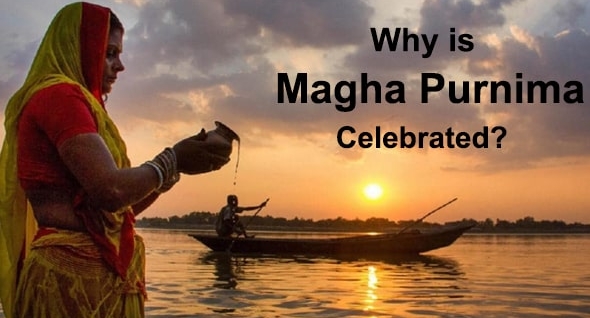
For Hindus, Magha Purnima is a significant day that occurs on the 'Purnima' (full moon day) in the fortnight of 'Magha' in the Hindu calendar. The months of January and February on the Gregorian calendar generally correspond to this date. The last and most significant day of the Magha Maas is Magha Purnima, also known as 'Maghi Purnima' or 'Maha Maghi.'
Purnima, according to Hindu mythology, is a significant day for conducting religious and spiritual rites, with the Magha Purnima being one of the most auspicious. Chat with Astrologer, Thousands of Hindu pilgrims bathe ritualistically at the Triveni Sangam in Prayag on this day. During this period, the legendary 'Kumbha Mela' and 'Magha Mela,' which attract devotees from all across the country, are also hosted. Even in India's southern states, such as Andhra Pradesh and Tamil Nadu, it is celebrated with zeal and merriment. The spectacular 'float' festival in Tamil Nadu is held on this day, with artistically decked idols of Meenakshi and Lord Sundeshwara mounted on floats. For Buddhists, Magha Purnima is especially significant since it is believed that Gautama Buddha announced his approaching death on the same day.
Rituals for Magha Purnima:
Devotees must rise early on Magha Purnima day and take a holy plunge in any water source before sunrise. Astrology Advice Online, Those who are unable to bathe in the river might do it at home by combining Gangajal with water. Following the usual bath, worshippers begin getting ready for the puja. Goddess Vishnu and Hanuman Ji are worshipped on this day. The day of Magha Purnima is also dedicated to worshipping Goddess Parvati and Lord Brihaspati, in addition to the 'Ishta Devatas' (as Brihaspati is the God of Magha Nakshatram). Satyanarayana Puja and Satyanarayana Katha are performed with great dedication by devotees. Banana peels, rosewood paste, til, supari, moli, and fruits are used to worship the Lord's idol. In most of Goddess Vishnu's temples across India, special arrangements can be made for this puja. In most of Goddess Vishnu's temples across India, special arrangements can be made for this puja. As a result, a large number of people visit the shrines in the evening. Fasting on the day of Magha Purnima is also thought to be helpful.
The follower of this vrat fasts throughout the day and only eats in the evening after sacrificing 'area' to the moon. A single meal is permitted per day. It is quite useful to donate clothing, food, cereals, ghee, jaggery, and fruits. Donations should be offered to Brahmins and people in need in any way. The Hindu texts state that Magha Purnima's Importance: The Brahma Vaivarta Purana mentions Magha Purnima's importance. According to Hindu mythology, Lord Vishnu stays in the River Ganga on this hallowed day, and it is widely believed that devotees can gain redemption just by contacting the holy water of the Ganga. Having a comprehensive bath in hallowed rivers like the Saraswati, Saraswati, or Yamuna on Magha
Purnima is particularly beneficial. Devotees who observe the Magha Poonam vrat sincerely may get relief from past sins, but also purity or peace of mind, Talk to Astrologer. The same benefits can be obtained by doing Maha Yagyas and giving charity to Magha Purnima. Aside from its religious meaning, the day of Larger and more robust Purnima is also significant in astrology. According to folklore, the Sun enters Sagittarius on this day, and the Moon enters the Cancer constellation. As a result, it is thought taking holy water on Magha Purnima will solve all difficulties associated with the Sun and Moon. From a scientific standpoint, the monthly of Magha is also helpful. This month is thought to aid the human body in adjusting to seasonal changes. As a result, bathing on Magha Panchami will provide body strength and power.